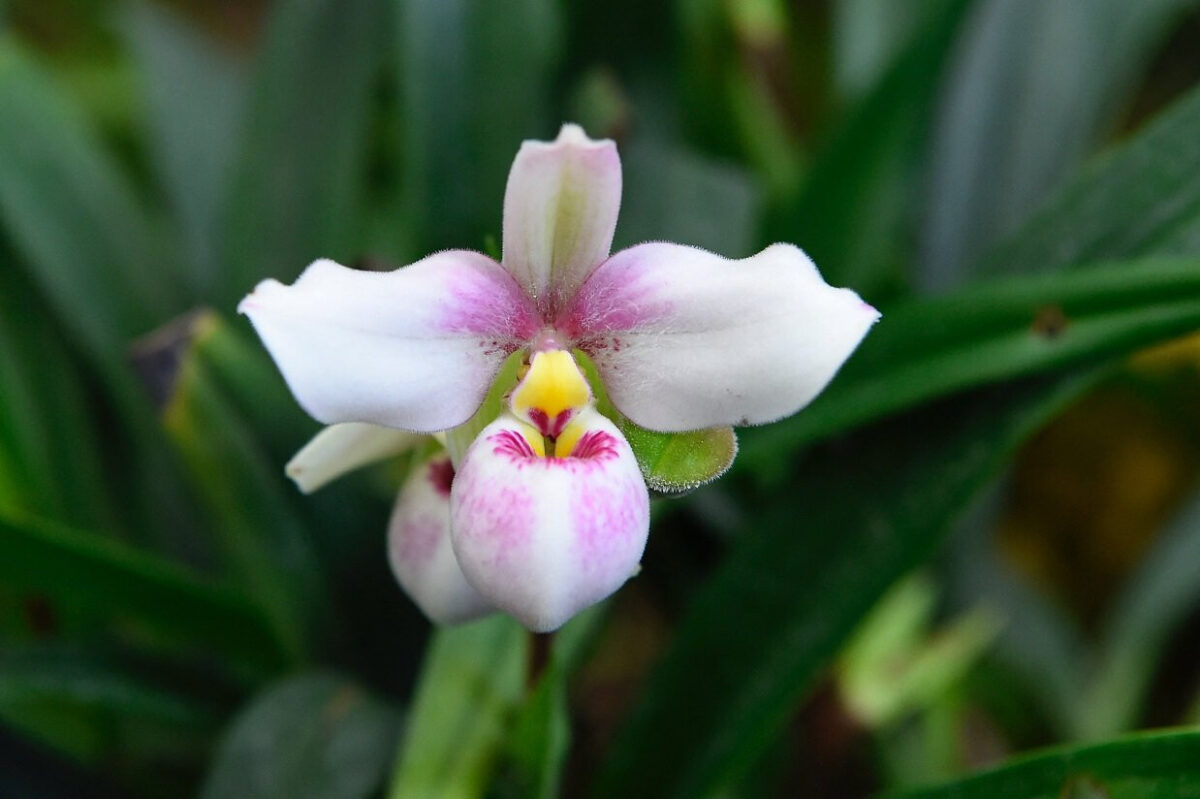


Depression is a health issue of global proportions, and in today’s social environment, the condition affects both young and old alike. Research in China has discovered that Dendrobium, used in Traditional Chinese medicine (TCM), has significant antidepressant effects.
A research team led by Dr. Li Xiaobo, a professor at Shanghai Jiao Tong University, Shanghai, published their research findings in the International Journal of Biological Macromolecules, titled “Alcohol-soluble polysaccharides from Dendrobium officinale flowers as an antidepressant by regulating the gut-brain axis.”
The research team discovered for the first time the active substance, alcohol-soluble polysaccharide, in Dendrobium officinale flowers (DOF), isolated and purified it, and used it in experimental rats suffering from depression.
The research found that the active homogeneous polysaccharide achieved antidepressant effects by regulating the “gut-brain” axis, that is, regulating the structure of rat intestinal microorganisms (including bacteria and fungi) and their metabolites such as short-chain fatty acids to alleviate excessive inflammatory responses in the body while mediating the normal activity of neuronal cells and the normal operation of the 5-HTergic system through a BDNF-TrKb-CREB pathway to jointly achieve antidepressant effects. This discovery has unlocked the mechanism of DOF in the treatment of depression.
Why can regulating gut microbes can have a mitigating effect on the brain nerves? An article published in Cureus Journal of Medical Science provided evidence that the permutations in the gut microbiome composition will trigger microbial lipopolysaccharides (LPS) production. Once the cytokines send signals to the vagus nerve, the production of LPS activates inflammatory responses, which in turn affects the hypothalamic-pituitary-adrenal axis, and thus a person’s mood.
Inflammation of the gastrointestinal tract can lead to neuroinflammation and may induce depression. Researchers have also found dysbiosis of the gut microbiome in patients diagnosed with psychiatric disorders, including depression.
Moreover, research on Dendrobium nobile Lindl alkaloids (DNAL) conducted by Key Lab for Basic Pharmacology of the Ministry of Education, Zunyi Medical University, Zunyi, China, also discovered that the DNLA attenuated neuronal damage. The research results were published in Science Direct on Nov. 15, 2021.
In addition, a report published in the journal Aging and Disease in December 2017 stated that the chemical components contained in dendrobium are alkaloids, polysaccharides, and flavonoids. Among them, alkaloids are the main active ingredients. This alkaloid has significant effects in improving insulin resistance, protecting against acute cerebral ischemic injury, improving brain memory and cognitive dysfunction, and is anti-cataract, and anti-tumor.
According to the Compendium of Materia Medica, a classical TCM book, Dendrobium is also known as Golden Arch, Dove Orchid, Pigeon Orchid, and Thunderstorm Orchid.
Dendrobium officinale flowers, also known as Dendrobium officinale Kimura et Migo, is an Orchidaceae genus plant in the Dendrobium. Its dried stem is a traditional Chinese herbal medicine that nourishes the stomach, promotes body fluid, nourishes yin, and clears pathologic heat. Its flower is often eaten fresh or dried to make tea to give the effect of calming and relieving depression.
Traditional Chinese medicine classics such as the Shennong Materia Medica, the Theory of Medicinal Properties, and the Compendium of Materia Medica have recorded that Dendrobium has the function of nourishing yin and kidney, is anti-fatigue, promotes the secretion of gastric juice, enhances metabolism to reduce weight and prolong life, and is widely used in clinical practice.
